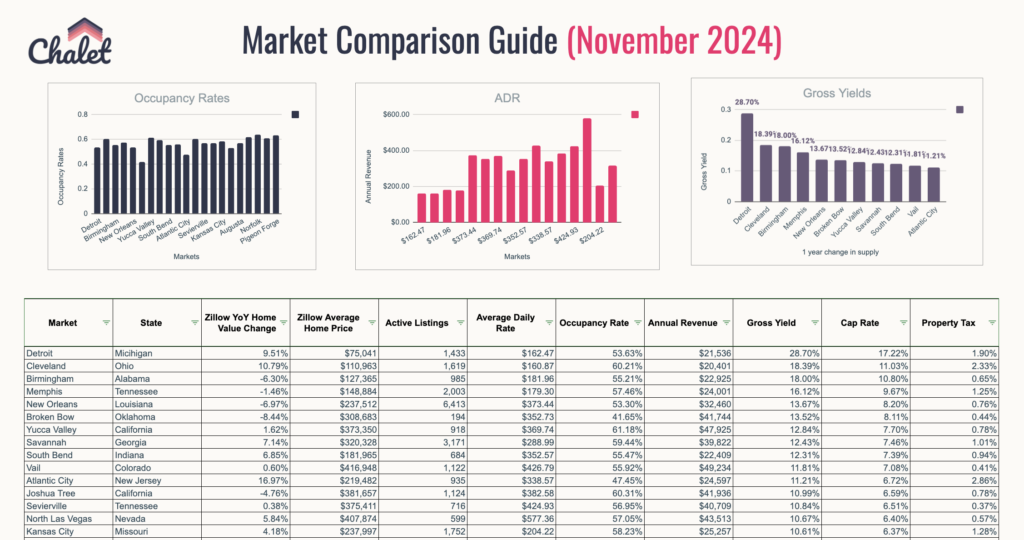Fort Lauderdale, Florida, renowned for its beautiful beaches, vibrant arts scene, and bustling marina, is a prime destination for tourists and short-term vacationers. For property owners in the city, Airbnb and other short-term rental (STR) platforms offer a lucrative opportunity to capitalize on the area’s popularity.
However, successful and legal operation of an STR requires a thorough understanding of the local regulatory environment. This guide provides detailed insights into the rules governing short-term rentals in Fort Lauderdale, ensuring hosts can navigate these regulations effectively.
Overview of Short-Term Rental Regulations in Fort Lauderdale
Fort Lauderdale has developed specific regulations aimed at managing short-term rentals responsibly within the community. These rules are designed to ensure guest safety, maintain the quality of life for local residents, and integrate STRs into the community without disruption.
Licensing and Registration
- Vacation Rental License: All STR operators in Fort Lauderdale must obtain a Vacation Rental License. This process involves an application with the city, which includes submitting floor plans and proof of liability insurance.
- Certificate of Compliance: Alongside the Vacation Rental License, hosts are required to obtain a Certificate of Compliance from the City of Fort Lauderdale, which involves an inspection to ensure the property meets all building and safety codes.
Tax Requirements
Airbnb hosts are required to collect and remit both state and local taxes on rental income. This includes Florida’s state sales tax and a local Broward County tourist development tax. Hosts must register with the Florida Department of Revenue and the Broward County Revenue Collector to fulfill these tax obligations.
Safety and Health Standards
- Safety Inspections: As part of the licensing process, STR properties undergo safety inspections. These inspections check for compliance with fire safety laws (e.g., smoke detectors in every bedroom), proper sanitation, and structural integrity.
- Maximum Occupancy Limits: Fort Lauderdale regulates the number of occupants allowed in an STR based on square footage and the number of bedrooms to prevent overuse of the property and reduce neighborhood disturbances.
Top 200 Airbnb Rental Markets

Instantly compare top 200 short-term (Airbnb) rental markets in the US
Operational Guidelines
- Good Neighbor Policies: Hosts must adhere to “Good Neighbor” policies, which include guidelines on noise, waste management, and parking to ensure that the STR operation does not negatively impact the surrounding community.
- 24-Hour Contact Requirement: Operators must provide a 24-hour contact number to neighbors and the city, who can address any issues with the property or its occupants promptly.
Steps to Ensure Compliance
To operate a compliant Airbnb in Fort Lauderdale, follow these steps:
- Obtain Necessary Licenses: Apply for a Vacation Rental License and Certificate of Compliance through Fort Lauderdale’s city website. Ensure you have all required documentation and information ready.
- Prepare Your Property: Make necessary modifications to meet safety and building codes. This may involve installing additional safety equipment or updating existing facilities.
- Register for Tax Collection: Sign up to collect and remit sales tax and tourist development tax through the appropriate state and county departments.
- Implement Good Neighbor Policies: Establish clear house rules for guests regarding noise, parking, and trash disposal. Communicate these rules effectively to your guests.
- Stay Updated: Keep abreast of any changes in local STR laws by regularly checking Fort Lauderdale’s official city website or subscribing to updates.
Resources for Airbnb Hosts in Fort Lauderdale
- City of Fort Lauderdale Official Website: Offers up-to-date information on STR regulations, licensing procedures, and compliance requirements.
- Florida Department of Revenue: Provides resources for registering and filing state sales tax.
- Broward County Revenue Collector: Information on local tourist development taxes and compliance.
By understanding and adhering to these regulations, Airbnb hosts in Fort Lauderdale can ensure their operations are both profitable and compliant, contributing positively to the community and enhancing the experience for visitors. Whether you are a new host or are seeking to align your existing rental with current regulations, this guide serves as a crucial resource for navigating the intricacies of STR laws in Fort Lauderdale.

